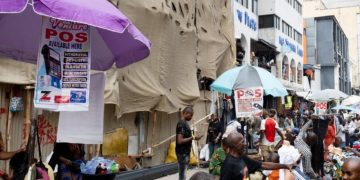CBN has ordered PoS agents to operate within 10 metres of their registered locations, mandating geo-tagging to curb fraud and enhance compliance.
The Central Bank of Nigeria (CBN) has introduced a new regulation requiring all Point of Sale (PoS) agents to operate strictly within a 10-metre radius of their registered business address.
In a circular dated August 25, 2025, and signed by Rakiya Yusuf, Director of the Payments System Supervision Department, the apex bank stated that every PoS terminal must now be geo-tagged to prevent relocation beyond its approved site. Compliance verification is set to commence on October 20, 2025.
The directive also mandates the adoption of the ISO 20022 messaging standard, aligning Nigeria with international payment protocols and SWIFT’s migration framework. All PoS devices are expected to be equipped with GPS-enabled geolocation services to monitor transactions in real-time.
Why the Policy?
According to industry insiders, the move aims to curb fraud, stop the misuse of PoS terminals, and strengthen Nigeria’s chances of exiting the Financial Action Task Force (FATF) grey list, where it was placed in 2023 due to gaps in tackling money laundering and terrorist financing.
Nigeria has witnessed a massive expansion of PoS usage since its introduction in 2013, with 8.36 million registered terminals and 5.90 million actively in use by March 2025. Transactions reached ₦10.51 trillion in the first quarter of 2025, marking a 301.67% surge from Q1 2024.
Implementation Concerns
Despite its intent to improve security and compliance, stakeholders say the policy could pose major challenges. An unnamed operator told TechCabal that retrofitting millions of terminals within 60 days may be unrealistic, given manpower shortages and the high costs of upgrading equipment.
“The rule might work for small kiosks, but it’s impractical for supermarkets, malls, hotels, and fuel stations where transactions occur beyond 10 metres,” the operator said.
Oluwagunwa Ibirogba, Chairman of the Lagos Chapter of the Association of Mobile Money and Bank Agents in Nigeria (AMMBAN), supported fraud prevention efforts but called for a more flexible approach. He warned that excessive restrictions could harm customer relationships and disrupt business operations.
Compliance Requirements
All payment terminals must now be registered with a Payment Terminal Service Aggregator (PTSA), either the Nigerian Interbank Settlement System (NIBSS) or Unified Payment Services Limited, with precise latitude and longitude data of each merchant’s location. Non-compliant terminals will be disabled.
Industry experts fear the directive could drive up costs, push smaller operators out of business, and cause operational disruptions across Nigeria’s rapidly growing PoS sector.















